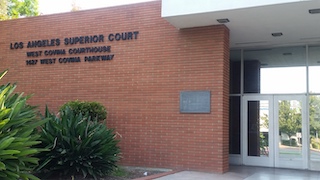Our client came to the United States from Mexico with his family at age two in 1986. He went to elementary school, middle school and high school in Southern California.
In 2005, in West Covina, he was arrested outside a bar for misdemeanor possession of drug paraphernalia (Health and Safety Code § 11364(a)). He did not think much of it, let alone its effects on his immigration status, as he was a permanent resident with a valid green card. When the judge in court read him “the immigration script” advising him that he could be subject to removal, denied naturalization and denied re-entry to the United States, he did not think it applied to him because everyone who entered a plea in court was told the same thing, even those were obvious U.S. citizens. Our client did not regard the admonition as applying to him.
The judge then placed him on three years of informal, or summary, probation with an obligation to pay a $120 court fine and perform 30 days of community labor (with credit for four days for two actual days in custody, plus two days “good-time, work-time” credits under Penal Code § 4019).
The client then performed 26 days of community labor and paid the court fees and fines.
The client then stayed out of trouble and married. Fast forward to 2021 and he is 36 years old with six kids, none of which who even speak Spanish, and a busy job in the plumbing industry supervising plumbers in Pomona, Corona, Calimesa and Barstow.
His green card had expired years ago and he never renewed it. However, he knew now that if he were to apply for a home loan, try to travel outside the United States (returning would be problematic) or apply to volunteer as a chaperone for any of his kids’ school activities, he would run into problems because he was not a U.S. citizen.
He needed to renew his green card, so he went to an immigration attorney who told him that he needed to try to vacate each of his convictions and he had several, including the drug paraphernalia conviction from West Covina Superior Court, although possession of drug paraphernalia is not technically a crime involving moral turpitude (CIMT).
The client then called Greg Hill & Associates and spoke with Greg Hill. The client explained what had happened in the underlying crime, what he was told when he entered his plea and why he needed the conviction vacated.
 West Covina Courthouse
West Covina Courthouse
Greg then explained to the client what Penal Code section 1473.7(a)(1) permitted and what the factual requirements were for the judge to vacate the conviction. Greg further explained that the conviction was merely vacated, so the prosecutor could then re-prosecute him, but rarely did so. Greg then explained how he had filed such a motion over two dozen times and what the usual prosecutor opposition against the motion was and how judges generally ruled.
The client explained that he never even discussed his immigration status with the public defender who represented him and the only thing our client cared about was getting out of jail. He had spent two days in jail and it was very difficult. He did not consider the immigration warnings as applicable to him because he was a permanent resident and had been in the United States since age two.
Moreover, had he known that the conviction would pose immigration problems, he would not have entered into the plea bargain and instead would have instructed his public defender to seek an immigration neutral plea bargain (i.e., to pre-plea drug diversion, trespassing or disturbing the peace) or take the matter to trial. After all, he had no family in Mexico anymore and barely knew how to speak Spanish, as his entire education was in English. He also had friends and a job here in the United States that he did not want to lose.
The client then hired Greg Hill & Associates and our office prepared the motion to vacate the conviction under Penal Code § 1473.7(a)(1), arguing that a preponderance of the evidence showed there was a prejudicial error in the conviction by the plea bargain our client entered into without knowing the actual or potential immigration consequences of the plea.
We filed the motion, serving not only the district attorney, but also the former attorney for our client.
The judge hearing the motion in the West Covina Superior Court granted the motion, which made our client very happy.
For more information about a motion to vacate under Penal Code § 1473.7(a)(1), please click on the following articles:
 West Covina Courthouse
West Covina Courthouse